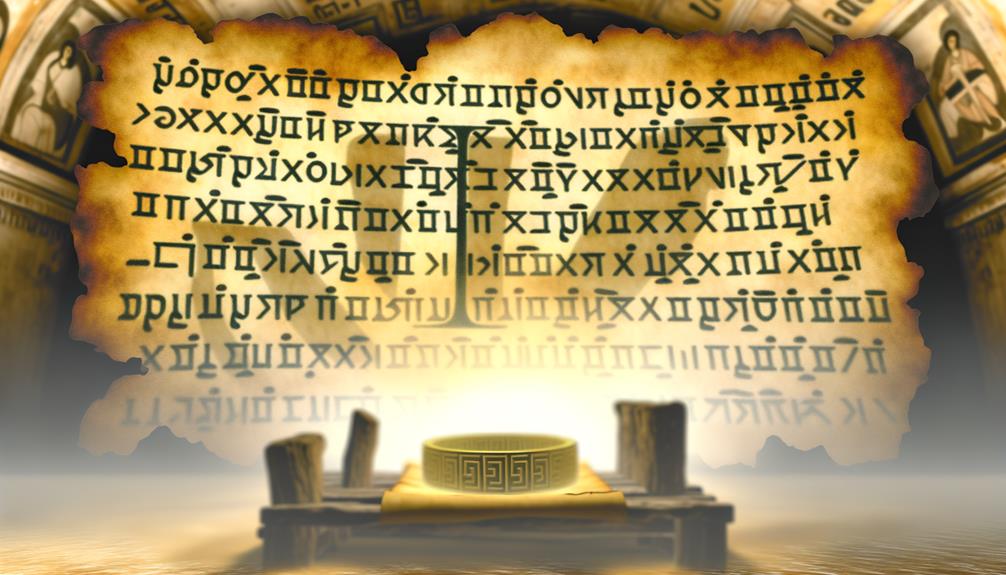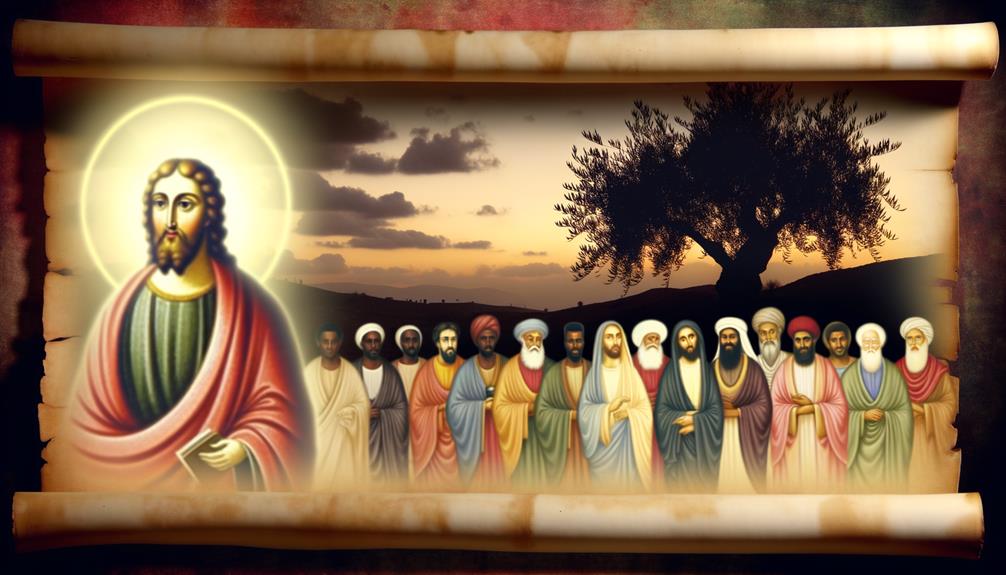Christos Meaning in the Bible: The Anointed Messiah
The term ‘Christos‘ in the Bible originates from the Greek word ‘Χριστός,’ meaning ‘anointed one,’ and serves as a Greek equivalent to the Hebrew ‘Mashiach’ (Messiah). In ancient traditions, anointing signified divine selection and empowerment.
Old Covenant passages, such as Isaiah 53 and Daniel 9:25-26, foreshadow an anointed redeemer, a theological anticipation fulfilled in New Covenant scriptures by Jesus Christ. Identified as the ‘anointed one’ (Matthew 16:16), Christos emphasizes Jesus’ redemptive mission, signifying his central role in salvation.
The term shapes Christian doctrines, practices, and spiritual identity, unfolding layers of theological depth.

Christos Meaning in the Bible: The Anointed One and Divine Messiah
| Aspect | Details |
|---|---|
| Definition | Greek word for Christ, meaning “Anointed One” or “Messiah” |
| Key Bible Reference | Matthew 16:16 – “Thou art the Christos, the Son of the living God” |
| Symbolic Meaning | Divine Savior, fulfillment of prophecy, God’s chosen Redeemer |
| Spiritual Insight | Christos confirms Jesus as the promised Messiah and the center of salvation |
| Moral Lesson | Faith in Christos leads to eternal life, divine purpose, and spiritual hope |
Etymology of Christos

The term ‘Christos‘ originates from the Greek word ‘Χριστός,’ which translates to ‘anointed one‘ in English. This etymological root showcases the significant role of anointing in ancient Greek and Hebrew cultures, where it symbolized divine selection and empowerment.
The Greek ‘Χριστός’ is a direct equivalent of the Hebrew term ‘Mashiach‘ (or ‘Messiah’), both denoting an individual set apart by God for a holy purpose. This semantic alignment underscores the theological continuity between the Old and New Scriptures, wherein the anointed figure is central.
Old Testament References

In the Old Scriptures, numerous passages foreshadow the coming of an anointed one, or Messiah, who would fulfill God’s promises to His people.
Key prophetic texts, such as Isaiah 53, depict a suffering servant who would bear the iniquities of many, pointing to the redemptive role of the Messiah.
Additionally, Daniel 9:25-26 speaks of an ‘Anointed One’ who is cut off, further emphasizing the sacrificial aspect.
The Psalms, especially Psalm 2 and Psalm 110, reference a divinely appointed king and priest, establishing a multi-faceted understanding of the Messiah’s role.
These texts collectively create a theological anticipation of an anointed deliverer, setting the stage for later New Covenant revelations.
New Testament Usage

New Covenant scriptures elucidate the fulfillment of Old Covenant prophecies through the identification of Jesus Christ as the awaited Messiah, or ‘Christos’.
The term ‘Christos’ appears prominently in the New Scripture, signifying Jesus as the anointed one. This designation is affirmed in texts such as Matthew 16:16, where Peter declares, ‘You are the Christ, the Son of the living God.’
Additionally, the Apostle Paul frequently uses ‘Christos’ to highlight Jesus’ redemptive role, as in Romans 5:8, ‘But God demonstrates his own love for us in this: While we were still sinners, Christ died for us.’
Consequently, the New Scripture consistently employs ‘Christos’ to establish Jesus’ messianic identity and divine mission, corroborating the prophetic anticipations of the Old Scripture.
Theological Significance

Understanding the term ‘Christos’ within a theological framework reveals a profound insight into the nature and mission of Jesus as the anointed one, central to the Christian faith. This designation emphasizes His divine appointment and fulfillment of Old scriptures.
Messianic Fulfillment: ‘Christos’ signifies Jesus as the long-awaited Messiah, fulfilling prophecies such as Isaiah 61:1-2.
Divine Anointing: The term underscores Jesus’ divine empowerment by the Holy Spirit (Luke 4:18).
Redemptive Role: It highlights His role in humanity’s salvation, as expounded in John 3:16-17.
Eschatological Hope: ‘Christos’ encompasses the anticipation of Jesus’ return and ultimate reign, as detailed in Revelation 19:11-16.
Thus, the term ‘Christos’ encapsulates critical theological concepts central to Christian doctrine.
Influence on Christian Faith

The term ‘Christos‘ profoundly shapes the core beliefs, practices, and spiritual identity within the Christian faith, serving as a cornerstone for doctrinal teachings and ecclesiastical traditions.
In scriptural context, ‘Christos,’ meaning ‘the Anointed One,’ signifies Jesus as the fulfillment of Old scriptures prophecies, establishing Him as the central figure of salvation history.
The Christological focus underscores His divine nature and redemptive mission, influencing sacramental theology, liturgical rites, and ethical living.
This theological foundation informs Christian worship, prayer, and the sacraments, particularly the Eucharist, where believers partake in the mystery of Christ’s presence.
The term also guides moral teachings, emphasizing love, compassion, and justice as reflections of Christ’s life and ministry.
Conclusion
The term ‘Christos‘ serves as a linchpin in biblical theology, intertwining etymology, scriptural references, and theological significance.
Old Scriptures prophecies foreshadow the anointed one, while New Scriptures texts affirm Jesus as the Christ.
This designation profoundly shapes Christian doctrine, symbolizing the fulfillment of divine promise.
Like a thread woven through a tapestry, ‘Christos’ binds together the narrative of redemption, underscoring its pivotal role in the foundation and perpetuation of Christian faith.






